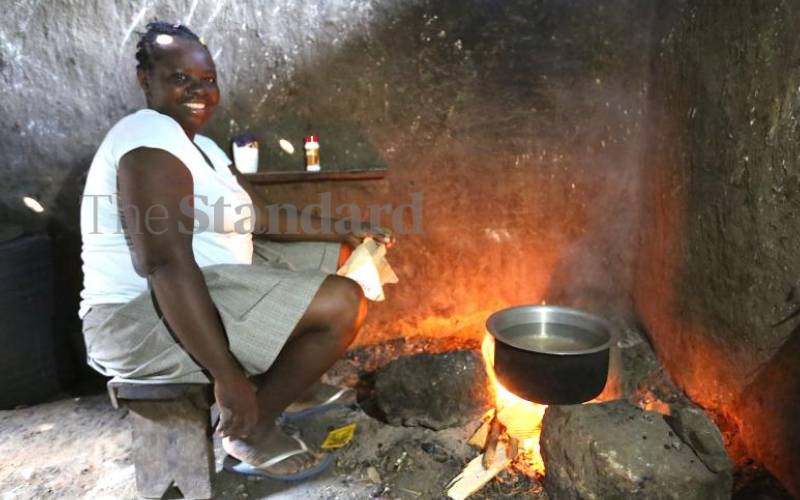×
The Standard e-Paper
Smart Minds Choose Us

Christine Isoyi from Emulundu village in Lurambi preparing a meal at her home. [Benjamin Sakwa, Standard]
For different communities, the three traditional cooking stones are a symbol of culture that has been passed down from different generations.